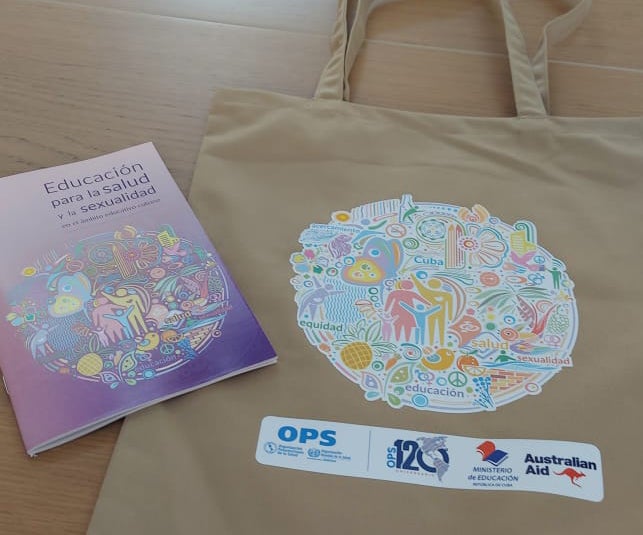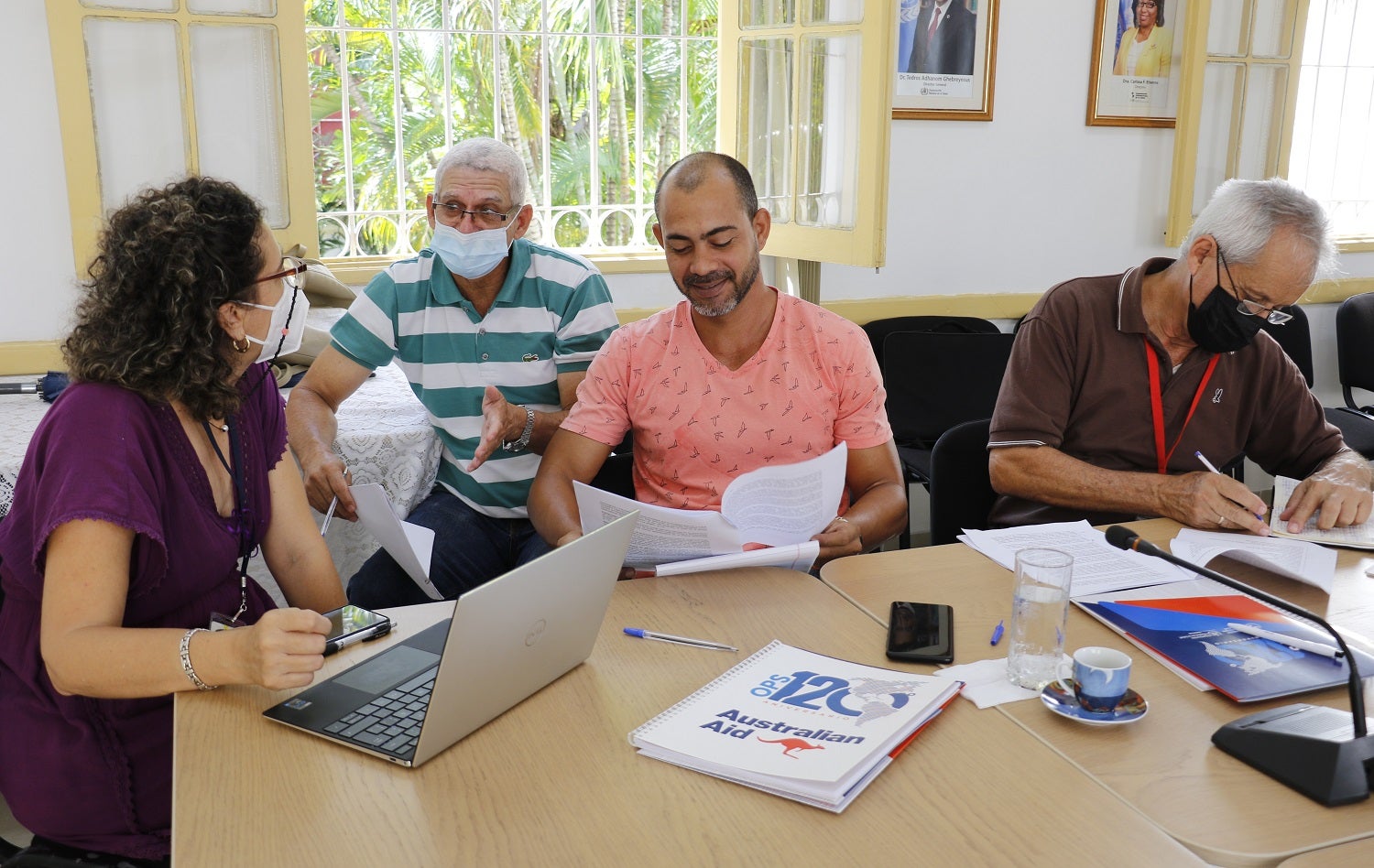Promoting Health and Well-being in Schools
Embassy of Australia and PAHO Join Forces in Cuba to Facilitate Intersectoral Collaboration and a Focus on Health in All Policies
The Government of Australia, through the Direct Aid Program (DAP), provides its diplomatic representations around the world with a flexible mechanism for assistance in the form of financial resources for activities to reduce poverty and contribute to sustainable development. The DAP is primarily focused on supporting local communities in developing countries with projects in a broad range of sectors, including education, health, water and sanitation, environmental protection, gender equality, supporting persons with disabilities, food security, and human rights.
The Embassy of Australia in Mexico accredited to Costa Rica, Cuba, Dominican Republic, El Salvador, Guatemala, Honduras, Nicaragua, and Panama manages and coordinates the competitive funds under the DAP awarded annually to non-governmental organizations, community-based organizations, and other development entities in countries eligible for Official Development Assistance.
The Government of Australia, through its embassy in Cuba, collaborates with the Pan American Health Organization (PAHO) in that country by investing in the promotion of healthy and sustainable schools, through intersectoral collaboration and a focus on health in all policies.
Promoting healthy and sustainable practices in schools in Cuba
In 2021, the Embassy of Australia and PAHO in Cuba signed an agreement to carry out a project to promote health and well-being in the school community and to support the empowerment and participation of women. The project for “Promotion of healthy and sustainable schools with the active participation of women in Cuba” aims to empower school administrators––mostly women––in implementing the health promotion and education strategy, and to strengthen institutional response capacity to develop healthy and sustainable practices in children.
Under the premise that schools can be vital drivers for development in their communities, this collaboration fostered intersectoral work with the Ministry of Education in Cuba to strengthen the technical expertise of administrators. Instructional documents were developed and disseminated to facilitate implementation of promotion and education strategies on health and sexuality. Administrators from different disciplines, including psychologists, pedagogists, communicators, nurses, and educators, worked together toward the common goal of promoting health for all. Women accounted for 75% of participating school leaders.
In the medium and long term, the project is also expected to benefit children and adolescents, who will continue to receive information on preventing communicable diseases, responsible sexuality, healthy eating, and other topics addressed during the educational process as part of the work to have schools that promote health.
Thanks to the successful results of the project and the broad geographical reach of the collaboration with the Government of Australia through its diplomatic missions, in 2023 PAHO in Cuba was selected for a second cooperation initiative also focusing on health promotion and intersectorality, but this time based on the healthy municipalities, cities, and communities movement. Accordingly, a pilot project was launched in 2023 in the municipality of Sancti Spíritus in the central region of the country.
The financial contribution of the Australian Embassy to the PAHO office in Cuba, together with its commitment to local development and well-being, has made it possible to achieve these results. These collaborative experiences are certainly catalytic investments for enhancing intersectoral work to boost the health and well-being of children and adolescents in the Region of the Americas.
Further information



